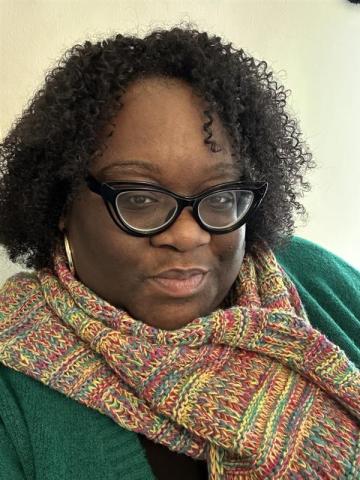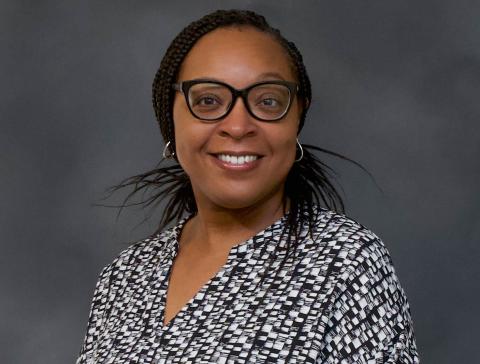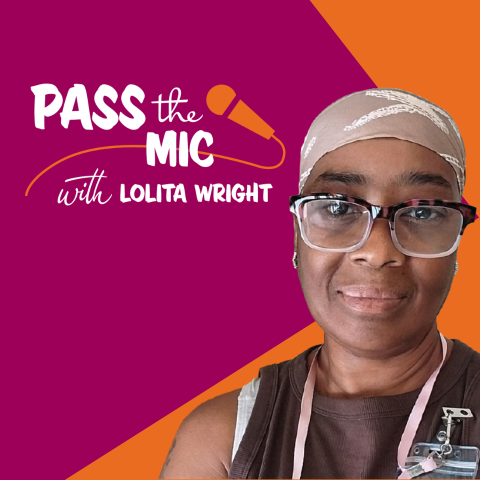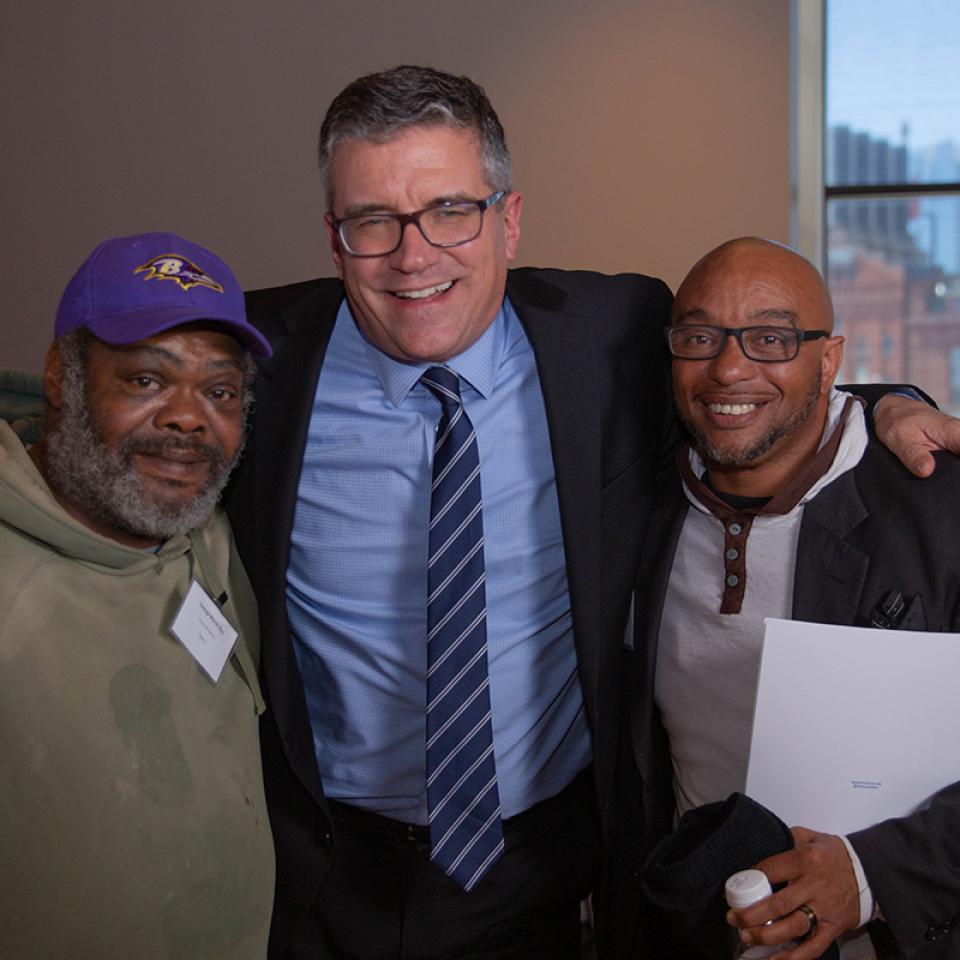
Community Convening on Homelessness
What happens when you put 150 Baltimore leaders in one room and ask them to discuss what creates and perpetuates homelessness?
Intentional and critically uncomfortable conversations.
On Friday, October 18, we did just that. Baltimore's top community, education, business, religious, health care, government, and philanthropic experts came together for a Community Convening on Homelessness to lean across the table, to learn from and to challenge one another. The goal for the day: to generate new working relationships across sectors to address homelessness with greater empathy and awareness.
Baltimore County Executive John "Johnny O" Olszewski, Jr. started the day off with this powerful rallying call, “The lines between Baltimore County and Baltimore City are just lines on a map. It’s time we remember that we rise and fall together. Deliberate conversations like this are so important.”
Together, the group explored:
How We Got Here: Examining the Root Causes of Homelessness
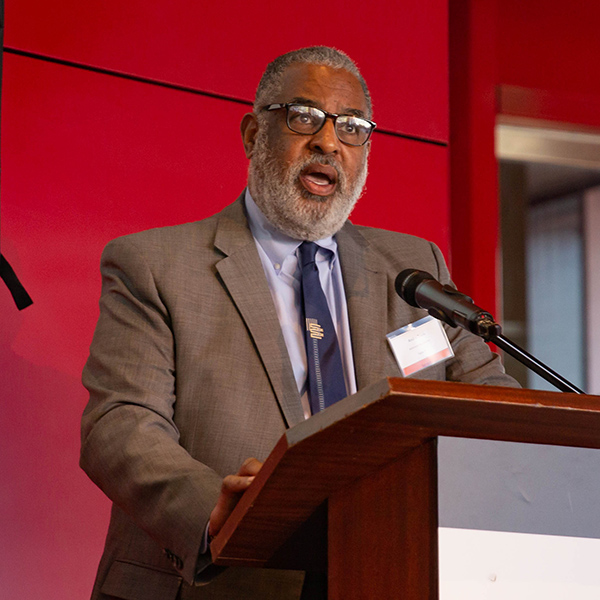 “Poverty is not a moral failure. It’s notable that this Convening takes place in Baltimore. 100 years ago, Baltimore was ground zero for legal segregation in housing.”
“Poverty is not a moral failure. It’s notable that this Convening takes place in Baltimore. 100 years ago, Baltimore was ground zero for legal segregation in housing.”
Andre Davis - Baltimore City Solicitor
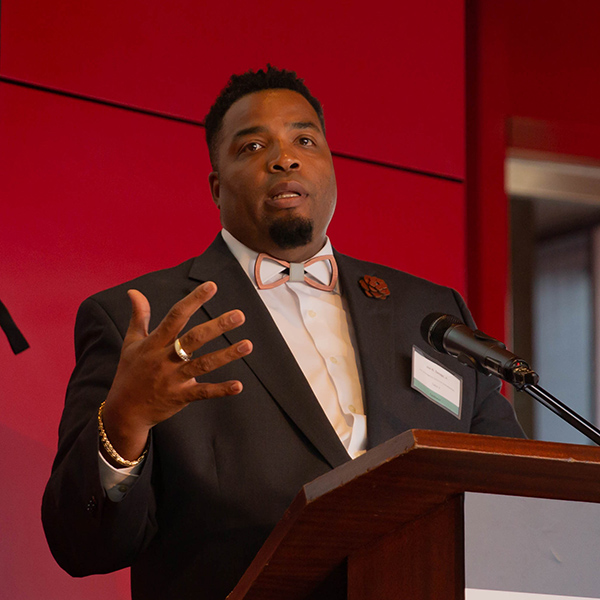 “The major causes of homelessness are systemic. In Maryland, it’s low wage jobs, lack of affordable housing, disability… This isn’t just a discussion, this must be an ongoing coordinated effort across sectors. If we want to change homelessness, we need to raise the voices of people with lived experiences."
“The major causes of homelessness are systemic. In Maryland, it’s low wage jobs, lack of affordable housing, disability… This isn’t just a discussion, this must be an ongoing coordinated effort across sectors. If we want to change homelessness, we need to raise the voices of people with lived experiences."
Joe N. Savage, Jr. - Regional Coordinator, U.S. Interagency Council on Homelessness
Where We Are Now: The Dynamics of Homelessness in Baltimore
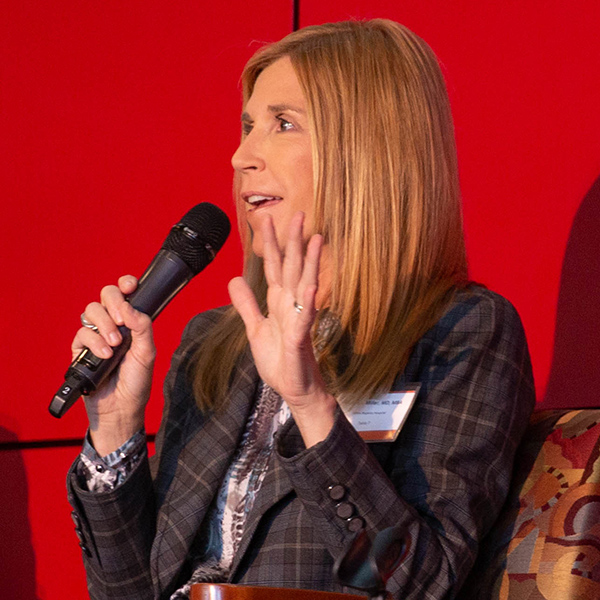 "Chronic medical conditions can lead to lack of housing. How are you supposed to take medication with meals when you don’t know where your meal is coming from? 600 of our patients experience homelessness each year for a variety of reasons. Our responsibility goes beyond acute episodes. How do we take on corporate responsibility as anchor institutions?"
"Chronic medical conditions can lead to lack of housing. How are you supposed to take medication with meals when you don’t know where your meal is coming from? 600 of our patients experience homelessness each year for a variety of reasons. Our responsibility goes beyond acute episodes. How do we take on corporate responsibility as anchor institutions?"
Redonda G. Miller - President, Johns Hopkins Hospital
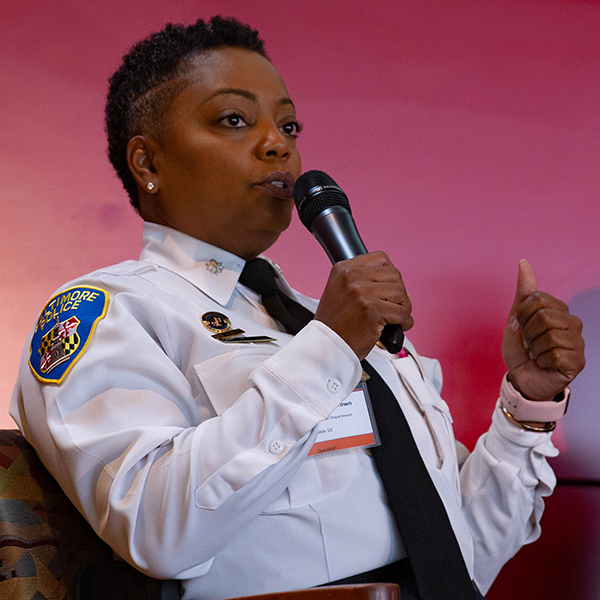 "Homelessness is not a crime! Most people dial 911 because they don’t know who to call. We are learning as we go along – education and training are big. I didn’t understand the dynamics of homelessness when I first started. These are real people that life happened to. It can be us. But if we work in silos, we can’t affect anything. We need to be a village.”
"Homelessness is not a crime! Most people dial 911 because they don’t know who to call. We are learning as we go along – education and training are big. I didn’t understand the dynamics of homelessness when I first started. These are real people that life happened to. It can be us. But if we work in silos, we can’t affect anything. We need to be a village.”
Monique Brown - Lieutenant Colonel, Neighborhood Services and Special Operations of the Patrol Division, Baltimore City Police Department
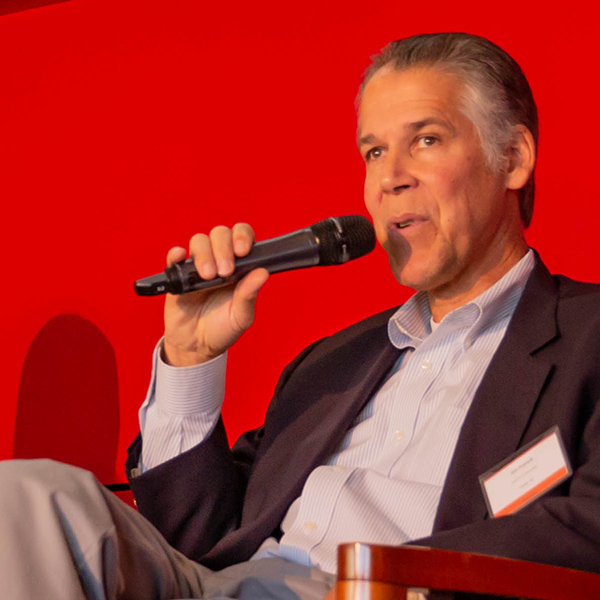 “There are many good developers who—with the right support—would develop affordable housing. But we don’t want to be left on our own. I hadn’t heard about trauma-informed care. That’s not something that comes up in our profession. We need different tools and allies.”
“There are many good developers who—with the right support—would develop affordable housing. But we don’t want to be left on our own. I hadn’t heard about trauma-informed care. That’s not something that comes up in our profession. We need different tools and allies.”
Jim French - President, French Development, LLC
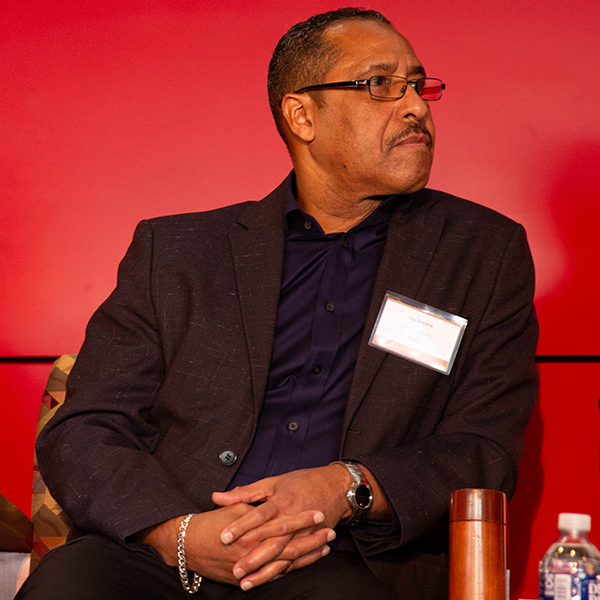 "We are just beginning to look at the intersection of housing and health. Coming to a conference like this helps me get a better understanding of the issue. It’s not simple. "
"We are just beginning to look at the intersection of housing and health. Coming to a conference like this helps me get a better understanding of the issue. It’s not simple. "
Jalal “Jay” Greene - Chief Operating Officer, Baltimore City Department of Housing and Community Development
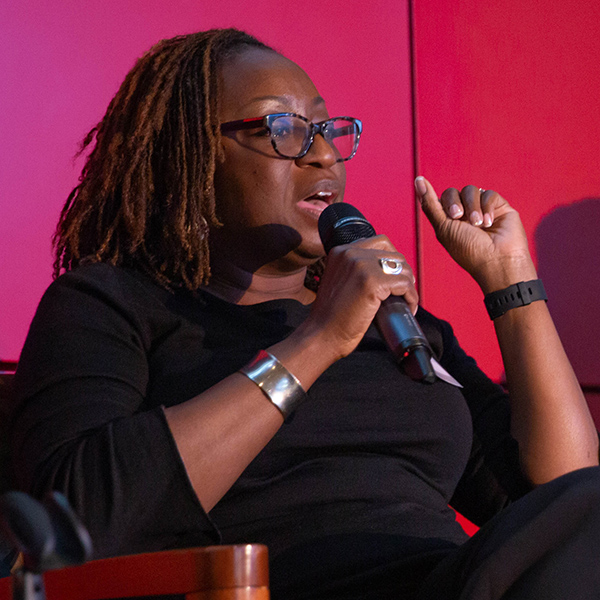 “People experiencing homelessness are actually experiencing socially engineered trauma based on a history of racism and policies that create inequity. We need to have more conversations about this history of systemic racism because a city that doesn’t acknowledge its history is destined to repeat it."
“People experiencing homelessness are actually experiencing socially engineered trauma based on a history of racism and policies that create inequity. We need to have more conversations about this history of systemic racism because a city that doesn’t acknowledge its history is destined to repeat it."
Wendy Shaia, Executive Director, Social Work Community Outreach Service, University of
Maryland School of Social Work
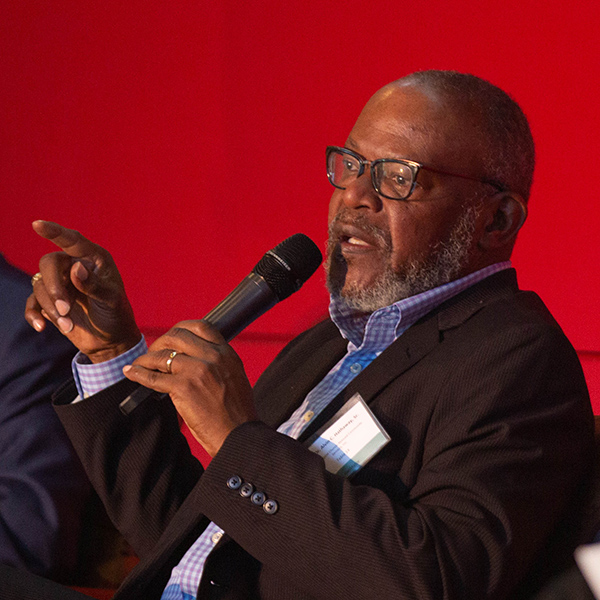 "We should insist on robust conversations with a multitude of diverse groups. Our city should be vibrant - it has so many assets.”
"We should insist on robust conversations with a multitude of diverse groups. Our city should be vibrant - it has so many assets.”
Rev. Alvin C. Hathaway, Sr., Senior Pastor, Union Baptist Church; President & CEO, Beloved Community Services, Inc.
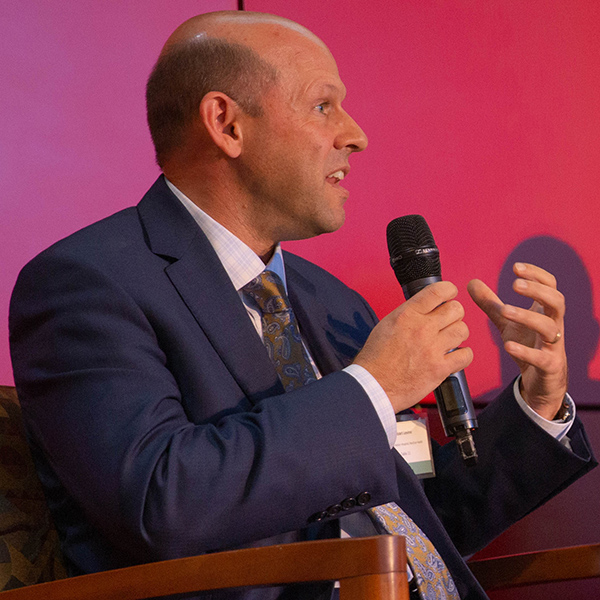 "We don't like prevention in this country. When it comes to disasters, we want to be heroic but not invest in making sure ALL communities are safe before they happen."
"We don't like prevention in this country. When it comes to disasters, we want to be heroic but not invest in making sure ALL communities are safe before they happen."
Stuart Levine, President & CMO, MedStar Harbor Hospital; Senior Vice President, MedStar Health
Where We Go from Here: Identifying Innovative (Structural) Approaches to Addressing Homelessness
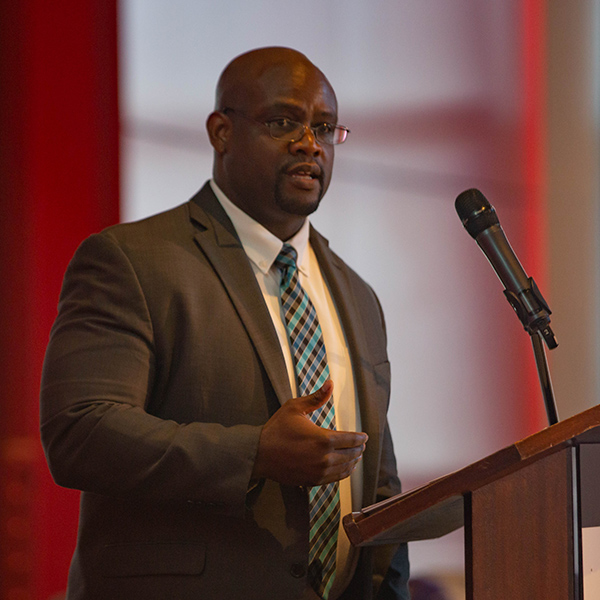 “If we’re going to address change, we must engage in self-reflection. Only a change of mind and heart can bring change in practice and policy.”
“If we’re going to address change, we must engage in self-reflection. Only a change of mind and heart can bring change in practice and policy.”
Eddie Martin Jr. - Director of Engagement, Health Care for the Homeless
Here's a small sample of what participants Gained from the day:
- “I learned to confront my own prejudices when it comes to the topic of homelessness.”
- “I became more aware of the silos that exist within our organizations…and how we can work together to collaborate instead.”
- “I learned just how many relevant and interested stakeholders are devoted to this issue in the city and throughout the state.”
We are incredibly grateful to our sponsors at CareFirst BlueCross BlueShield, Kaiser Permanente and PNC Bank, our facilitators, speakers and attendees for making these uncomfortable, but crucial conversations possible. This convening reminds us that, while it remains essential to advance our 35-year mission to prevent and end homelessness, our ultimate goal is the creation of sustainable communities. Because truly sustainable communities don’t let homelessness happen in the first place.
More Recent News
After a year of serving as Practice Manager of West Baltimore, Alkema Jackson is moving into the new role of Director of Practice Operations, Community Sites! She joined Health Care for the Homeless in 2022 as the Client Access Project Coordinator, collaborating across departments to help more people connect to agency services, and in 2023, she received a Core Value Award for Hope. Read on to learn more about Alkema’s approach to this new position…
Meet Christana Greene, our new Director of Compliance! With more than five years in the compliance field—most recently as Senior Quality and Patient Safety Specialist at GBMC Healthcare—Chrissy brings frontline insight to the role. She began her career as a medical assistant, gaining firsthand experience in what it takes to keep care safe and operations running smoothly. In her new role, Chrissy is focused on building a compliance culture grounded in safety, integrity and accountability. Read on to learn more about Chrissy...
Baltimore gets dangerously cold, and too many of our neighbors are out there.Here are three simple things you can do to make a difference in someone’s life this winter.
Meet Lolita Wright, a mother and caregiver. Lolita is never leaving Baltimore. She shares her parents' love of music and determination.



